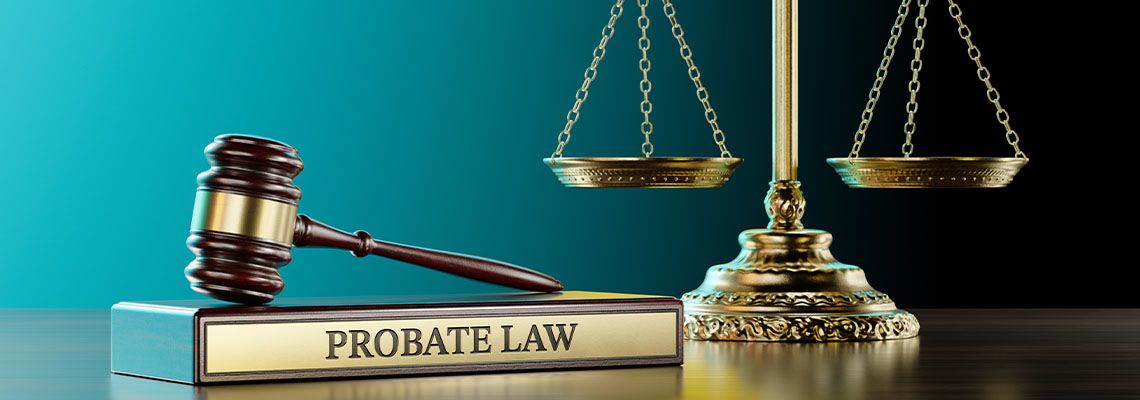
Being a Conservator requires you to manage another person's money, down to the penny.
When you’re appointed as a conservator, you’re stepping into one of the most important — and heavily scrutinized — financial roles the law can create.
At The Probate Law Center, we guide conservators through their duties every step of the way. Here’s a simple but crucial overview of what it really means to manage someone else’s money.
What Is a Conservatorship?
A conservatorship is a court-supervised arrangement where one person (the “conservator”) is given the legal authority to manage the financial affairs of another person (the “protected person” or “ward”).
You might be appointed conservator if:
A minor inherits money but isn’t legally old enough to manage it
An adult becomes incapacitated and can’t handle their own finances
Someone with a disability needs help managing assets or income
While every case is different, the court expects conservators to act honestly, carefully, and strictly for the benefit of the protected person.
What’s the Difference Between a Conservator and a Guardian?
The terms conservator and guardian are often confused — but they mean very different things.
A conservator manages the protected person’s money, property, and financial affairs.
A guardian is responsible for the protected person’s personal care, including decisions about medical treatment, living arrangements, and day-to-day wellbeing.
Sometimes, the same person serves as both conservator and guardian. Other times, the court appoints different people to handle these separate roles — especially if managing finances and personal care requires different skills.
If you’re appointed as a conservator, your authority is limited to financial matters unless the court also names you as a guardian.
What Are a Conservator’s Main Duties?
Conservators aren’t just helpers — they’re fiduciaries, held to the highest legal standard of care. Some core responsibilities include:
Inventorying assets — Filing a full list of the protected person’s assets with the court.
Keeping assets separate - The funds belonging to your Ward must be kept in a separate, specially designated Conservatorship account.
Managing money responsibly — Budgeting for the protected person’s needs, paying bills on time, investing wisely.
Keeping meticulous records — Every penny that comes in or goes out must be recorded.
Filing accountings — Annual (and sometimes more frequent) detailed reports to the court showing exactly how funds were used.
Seeking court approval when needed — Major actions, like selling real estate or making large purchases, often require a judge’s prior permission.
Common Pitfalls That Get Conservators Into Trouble
Even well-meaning conservators can easily make mistakes. Some of the most common — and dangerous — errors include:
Mixing funds — Never combine your personal money with the protected person’s money, even temporarily.
Failing to document transactions — No receipt? No proof.
Making unauthorized gifts — Giving away assets without court approval can violate your fiduciary duty.
Delaying required filings — Missing accounting deadlines raises red flags.
Overpaying yourself — Conservators are sometimes entitled to reasonable fees — but only with court approval.
Mismanaging even a small amount of money can lead to:
Court sanctions
Removal as conservator
Personal liability for financial losses
Can a Conservator Get Paid?
Yes — conservators are allowed to request payment for their time and effort.
However, you cannot just pay yourself whenever you want.
You must:
Keep detailed time records
Request court approval for fees
Charge only “reasonable” amounts under local rules
Unauthorized payments can be treated as theft.
Special Responsibilities If You’re Managing a Large Estate
If the protected person owns significant assets — like real estate, business interests, or investments — you may also have to:
Obtain court orders for sales
Invest conservatively (following “prudent investor” rules)
Consult with professionals (lawyers, accountants, realtors) as needed
Managing a large estate without help can be overwhelming — and risky.
What Happens at the End of a Conservatorship?
When the protected person recovers, turns 18 (if a minor), or passes away, you’ll need to:
File a final accounting with the court
Turn over all remaining assets to the protected person or their heirs
Obtain a formal discharge order releasing you from liability
Skipping these steps can leave you exposed to lawsuits — even years later.
📅 Deadlines Matter — Always.
Every court sets strict timelines for inventories, accountings, and reports.
Missing a deadline isn’t just bad manners — it can cost you your role.
In Missouri and Kansas, annual accountings are standard, but courts can demand updates more often if there are concerns.
Serving as a conservator is an honor — but it’s also a tremendous responsibility.
The court expects you to handle the protected person’s assets as if they were your own, and to act with honesty, caution, and complete transparency.
If you’re facing appointment as a conservator, already serving, or worried about meeting your duties, don’t go it alone. Legal guidance can save you — and your loved one — from costly mistakes.
Need help setting a conservatorship?
Contact The Probate Law Center at www.ksmoprobate.com today. We’re here to guide you through every step.
Legal Disclaimer: This blog post is for informational purposes only and does not constitute legal advice or establish an attorney-client relationship. Please consult a qualified attorney for advice regarding your specific situation.

